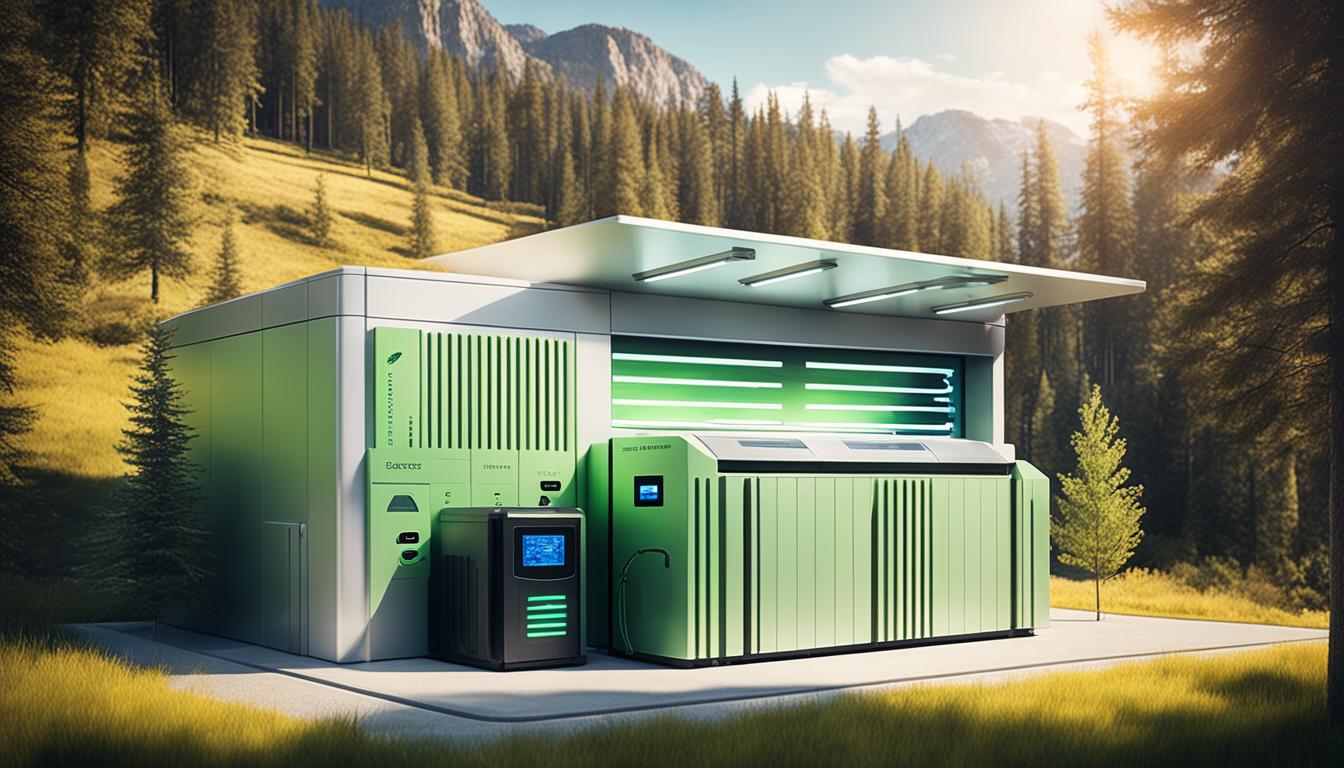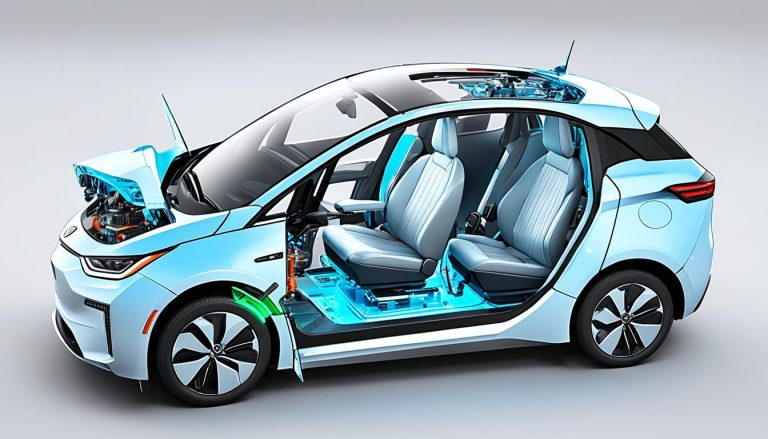Why Do We Need Energy Storage Systems
In today’s fast-paced world, where power efficiency and grid stability are of utmost importance, energy storage systems have become indispensable. These systems play a crucial role in maintaining power efficiency, ensuring a reliable energy supply, and stabilizing the grid. Let’s explore why energy storage systems are essential in the current energy landscape.
Energy storage systems, as the name suggests, store energy during times when it is abundant and release it when demand is high. This capability allows for a more balanced supply and demand of electricity, leading to increased power efficiency. By regulating the flow of energy, these systems help optimize the use of resources and reduce wastage.
But their impact goes beyond power efficiency. Energy storage systems also contribute to grid stability by supporting frequency regulation. They provide quick response times to fluctuations in demand and stabilize the grid, ensuring a continuous and reliable supply of electricity. This is particularly crucial in the face of increasing renewable energy integration and the electrification of transportation, which further highlights the need for robust energy storage solutions.
As the energy landscape continues to evolve, energy storage systems are vital in meeting the growing demand for a flexible and resilient grid. They mitigate power outages, enhance the integration of renewable energy sources, and pave the way for future advancements in smart grid technologies. The energy storage market holds immense potential for the overall energy sector, promising a sustainable and efficient future.
Enhancing Power Efficiency with Energy Storage Systems
Energy storage systems are playing a vital role in enhancing power efficiency in the modern energy landscape. These innovative solutions contribute to achieving a balanced supply and demand of electricity, ensuring a more efficient and reliable grid. In addition to their fundamental role in maintaining grid stability, energy storage systems offer several benefits that directly impact power efficiency.
One key advantage of energy storage systems is their ability to store excess energy during off-peak hours and release it during peak demand periods. This dynamic capability helps to reduce the strain on the grid during times of high electricity consumption, resulting in improved power efficiency. By optimizing the distribution of energy throughout the day, energy storage systems enable a more effective utilization of resources, reducing waste and unnecessary emissions.
Moreover, energy storage solutions facilitate the integration of renewable energy sources into the grid. As the demand for clean and sustainable energy increases, energy storage technologies provide a means to overcome the intermittent nature of renewable sources such as solar and wind power. By storing excess energy generated during periods of high renewable energy production, energy storage systems ensure a consistent and reliable power supply, eliminating the limitations imposed by the intermittent availability of renewable sources.
Achieving a Sustainable Future
“Energy storage systems are revolutionizing the way we harness and distribute energy. By efficiently storing and utilizing electricity, these solutions are paving the way for a more sustainable and resilient energy future.” – Lisa Johnson, Renewable Energy Expert
Energy storage systems not only enhance power efficiency but also contribute to the overall sustainability of the energy sector. As the focus shifts towards reducing carbon emissions and transitioning to cleaner energy sources, the integration of energy storage solutions becomes imperative. By enabling the effective utilization of renewable energy, these systems contribute to the reduction of greenhouse gas emissions and the mitigation of climate change impacts.
To further emphasize the significance of energy storage systems in power efficiency, consider the following real-life example: a solar power plant with an integrated energy storage system. During times of excess sunlight and low electricity demand, the surplus energy generated by the solar panels can be stored in the energy storage system. Later, when the demand for electricity increases or when the sunlight is insufficient, the stored energy can be discharged, ensuring a consistent power supply without relying on backup fossil fuel generators.
| Benefits of Energy Storage Systems in Enhancing Power Efficiency |
|---|
| 1. Balancing supply and demand of electricity |
| 2. Storing excess energy during off-peak hours |
| 3. Releasing stored energy during peak demand periods |
| 4. Optimizing resource utilization and reducing waste |
| 5. Facilitating the integration of renewable energy sources |
| 6. Mitigating the limitations imposed by intermittent renewable sources |
Ensuring Grid Stability through Energy Storage Systems
Grid stability is a critical aspect of ensuring a reliable and efficient supply of electricity to communities and industries. Energy storage systems play a crucial role in maintaining grid stability by providing quick response times and frequency regulation.
One of the key energy storage technologies that aid in stabilizing the grid is battery storage. Battery storage systems enable the efficient storage and release of electricity, allowing for the balancing of supply and demand during peak and off-peak hours. These systems can provide power within milliseconds, effectively responding to fluctuations in electricity demand and maintaining grid stability.
In addition to battery storage, other energy storage technologies such as flywheel systems, compressed air energy storage, and pumped hydro storage also contribute to grid stability. Flywheel systems use the rotational kinetic energy stored in a spinning flywheel to provide quick bursts of power when needed. Compressed air energy storage involves compressing and storing air in underground caverns, releasing it to generate electricity during peak demand periods. Pumped hydro storage utilizes the gravitational potential energy of water stored at a higher elevation, releasing it to generate electricity when demand is high.
Energy storage systems also play a vital role in ensuring grid resilience and mitigating power outages. By storing excess energy during times of low demand and releasing it during high demand, these systems help balance the grid and minimize the risk of overloading or blackouts. They also provide backup power in the event of a grid failure, ensuring a continuous supply of electricity to critical facilities such as hospitals and emergency services.
It is important to note that the integration of renewable energy sources, such as solar and wind, into the grid introduces challenges related to their intermittent nature. Energy storage technologies help address these challenges by storing excess energy from renewable sources and releasing it when generation is low, thereby facilitating a smoother integration of renewables and ensuring grid stability.
Overall, energy storage systems are indispensable in maintaining grid stability, providing frequency regulation, and ensuring a reliable and resilient supply of electricity to meet the growing energy demands of our modern world.

Meeting the Growing Need for Energy Storage Systems
The energy storage market is experiencing a significant surge in demand, driven by various factors. One of the key drivers is the growing need to integrate renewable energy sources into the existing power infrastructure. As renewable technologies like solar and wind continue to expand, the ability to store excess energy for use during periods of low generation becomes crucial. Energy storage systems play a vital role in enabling this seamless integration, ensuring a reliable and continuous supply of clean energy.
Another factor contributing to the increasing demand for energy storage systems is the electrification of transportation. With the rapid adoption of electric vehicles (EVs) worldwide, there is a growing need to efficiently manage and store the electricity required for these vehicles. Energy storage technologies offer an effective solution by allowing for the development of robust charging infrastructure and providing grid stability to support the widespread use of EVs.
Moreover, the advancement of smart grid technologies is also contributing to the future demand for energy storage systems. With the implementation of intelligent monitoring and control systems, energy storage can play a vital role in optimizing grid operations, improving power quality, and enhancing overall system efficiency. This presents a significant opportunity for the energy storage market to grow and meet the increasing demands of a modern and digitally-driven energy landscape.
Looking ahead, the energy storage market holds immense potential. As the need for sustainable energy solutions continues to rise, the demand for energy storage systems will continue to escalate. Not only do these systems enable a smoother integration of renewable energy, but they also provide grid stability, support the growth of electric transportation, and contribute to the overall resilience of the energy sector. With a promising future, the energy storage market is poised to play a pivotal role in shaping the way we generate, distribute, and consume energy.







